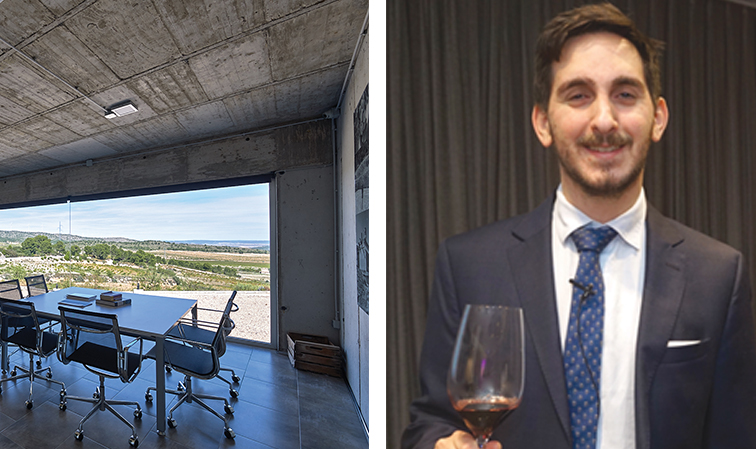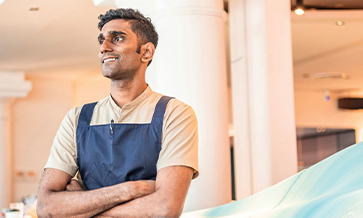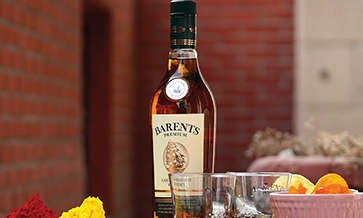At age 27, Pedro Moreno has toured half the world on his mission to develop awareness about Spanish wines coming out of Jumilla (Denomination of Origin) and its Monastrell grapes. As Export Manager of Murcia-based Ego Bodegas Winery, he is considered an expert on the region’s wines. Here he dwells on the USP of the region, and explains the phenomenal growth of his first-generation wine-exporting company.
Just how deceptive appearances can be! When I met Pedro at a restaurant in Bengaluru recently, his youthful personality hid the fact that he is a graduate in Business and Law from his native Murcia (Spain) and a post-graduate in International Business from Manchester Metropolitan University (UK).
Wine is an integral part of Spanish culture; and the fact that his grandfather used to work on French vineyards helped Pedro with an early initiation into the wonders of wines.
Even as he was wrapping up his studies for his WSET Diploma in wines, Pedro joined the Ego Bodegas Winery in Valle Hoya des Torres, Murcia, in 2015. He learnt the ropes soon enough before taking on the onerous task of promoting his wines across the globe.
It has been a roller-coaster ride, visiting markets in more than 45 countries that already get to taste his wines – and the rest of the world where Pedro is offering wine lovers their first taste of the nectar flowing from the Monastrell of Jumilla.
Phenomenal growth
The winery was launched in 2012 by a “multi-national” couple: Santos Oritz from Spain had more than 10 years’ experience running wineries in the country, and his Romanian wife, Ioana Paunescu, had some in (non-wine) exports and sales.
Determined to put Santos’ talent to good use, the first generation wine-maker couple put together the Ego Bodegas infrastructure outside Jumilla. The partners see it as the strength of Santos’ experience married to the vitality of the 30-odd very young employees in the private venture, Pedro informs me.
The winery sits on elevated land, overlooking the Monastrell vineyards (which are older than the combined age of its present owners), and offers spectacular views of the landscape.
The first year yielded about 1,00,000 bottles and earnings of about Euro 2,00,000. In 2015, the couple expanded production six-fold. Today Ego Bodegas makes 16 wines from Monastrell grapes and exports to 45 countries. In 2018 the winery sold 1.5 million bottles and crossed Euro 5 million in sales.
Power to dream
As my eyes widen at the (unbelievable) exponential growth in less than a decade, Pedro takes pride in informing me that Ego Bodegas featured in the Financial Times’ list of fastest growing companies in Europe for two years in a row, and was the only winery on that list.
According to the travelling ambassador, Ego Bodegas is firmly focussed on quality (raw material, processes and product), price (to compete with the 1,000-odd other wineries in Spain) and image (attractive labelling and packaging).
Each bottle of wine from Ego Bodegas carries the principles on which the winery was founded: Ego (pride in the product and brand), Talento (the ability to perform and carry out tasks), and Infinito (the power to dream without borders). These three words also gave name to three of Ego Bodegas’ wines.
“We make what we think a good wine should be; one which allows you to enjoy whatever accompanies it; a wine which does not stand out, but does not fall short because its virtue lies in the happy medium between two extremes,” Pedro says.
Unique region
What is so different about the Jumilla region? For one, it is located between the high plateau of La Mancha and the Mediterranean Sea, which give it a very warm climate. “It is like a desert,” says Pedro, “with very low rainfall and lots of sunlight. The soil is calcareous, with just a hint of clay to trap moisture.”
The soil is also a natural repellent of phylloxera due to its low content of organic material, which is not conducive to the propagation of pests.
At Ego Bodegas the aim is not to grow big grapes, or increase production by weight; but to focus on high sugar concentration, regulate acidity and arrive at correct ripening, Pedro emphasises.
The vines are trained in the form of bushes, instead of cordons and pergolas: this helps the grapes catch the sun’s energy best. The vines are spaced far apart, to prevent competition among vines for scarce water and nutrients in the soil.
DO Jumilla, which covers 19,000 hectares of vineyards in the provinces of Murcia and Albacete, was founded and the regulation was established in 1966, making it one of the oldest in Spain.
Ego Bodegas currently owns 50 hectares of vineyards, but the winery buys much of its requirements from farmers across 600 hectares in its vicinity.
India market
Out of the 16 wines exported by Ego Bodegas, three made their entry into the Indian market in November 2018. And they made their mark right away – at the 2019 Indian Wine Awards, the El Goru won gold, the Goru El Blanco bagged silver, and the Fuerza was adjudged ‘Best in the Show’! The third wine is the Marionette.
About the market here, Pedro says he is pleasantly surprised to come across several well-informed wine connoisseurs, sommeliers and professionals in the hospitality industry. “The selection of our wines was based on the demands of the maturing Indian market,” he adds.
He has a soft corner for influencers in the hospitality industry: sommeliers and bartenders. “I always thank them because they are not merely pouring out wine; they are delivering an experience to their guests!” he says. “Keep up your passion and update your knowledge always.”
He finds beauty in the fact that a bartender in one place on earth is delivering a great experience to his/her guest from another part of the globe, through a wine that has been made in yet another part of the world.
As a tip he wants to tell them: never pour wine from a bottle that has been opened more than 4 days ago – provided, of course, that it has been stored under proper conditions. “Otherwise you will give wine-makers a bad name, and your guests an unpleasant experience!”














